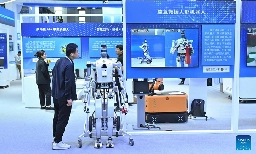
German Chancellor Olaf Scholz has spoken with Russian President Vladimir Putin in what appeared to be the first conversation with the sitting leader of a major Western power in nearly two years.
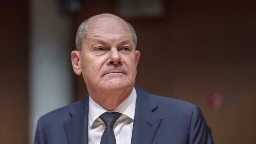
German Chancellor Olaf Scholz has spoken with Russian President Vladimir Putin in what appeared to be the first conversation with the sitting leader of a major Western power in nearly two years.
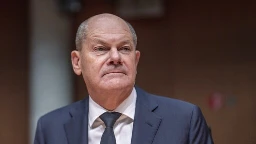
Celinda Sosa emphasized that "BRICS is a new alternative that will be able to help first of all countries like Bolivia, but also many others"

Prime Minister of the Slovak Republic Robert Fico paid an official visit to China, October 31-November 5. He met with Chinese President Xi Jinping on November 1. Noting that this year marks the 75th anniversary of the establishment of diplomatic relations between China and Slovakia, Xi said that aft...
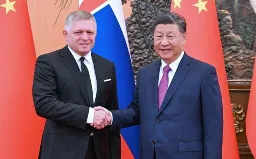
The close fraternal relations between China and Cuba were underlined and reinforced by the November 6-12 China visit of Esteban Lazo Hernandez, the President of Cuba’s National Assembly of People’s Power, at the invitation of his counterpart, Zhao Leji, Chairman of the Standing Committee of the Nati...
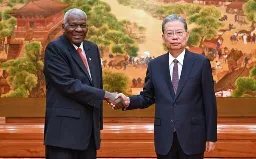
The academic will serve as chair professor at Nankai University’s Chern Institute of Mathematics.
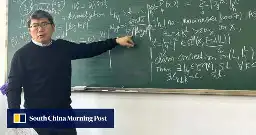
https://archive.ph/fnPyy
The war has taken its toll, as men fight or flee, and few are left behind to work
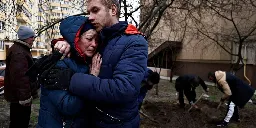
Russia’s economy has been battered by sanctions and high inflation, but there is no chance of a major economic crisis occurring anytime in the next ...

I would suspect so as well. Just as people in western politics have been strongly influenced by the system they grew up in, I'd expect Russian politicians internalized at least some Soviet values going through the system.
Mikhail Bogdanov added that it allows using those debts "to implement socio-economic projects directly in the country"
Mikhail Bogdanov added that it allows using those debts "to implement socio-economic projects directly in the country"
Senior Russian official Sergei Shoigu on Tuesday told China's foreign minister Wang Yi their two countries' most urgent task should be countering "containment" by the United States, as they met for security…
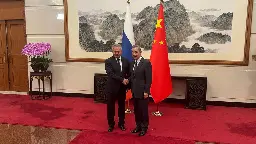
Weaker domestic demand means China has been relying more on exports to boost economic growth.

Weaker domestic demand means China has been relying more on exports to boost economic growth.

YouTube Video
Click to view this content.
They're not replacing traditional automation. It sounds like they're using humanoid robots for their flexibility. The advantage is that they can work in spaced designed for humans.
According to the movement’s military spokesperson, the Houthis place responsibility for "turning the Red Sea into a zone of military tension" and the impact on navigation in the area on Washington and London

According to the movement’s military spokesperson, the Houthis place responsibility for "turning the Red Sea into a zone of military tension" and the impact on navigation in the area on Washington and London

From what I've seen, mostly stagnating or regressing based on the industrial PMI numbers. One other country that's having big industrial growth right now is Russia.
That's why she correctly identifies them as controlled opposition in the vid.
ah added the archive
I very much agree. I'd also add that his view is basically to focus on the selection pressures within the geopolitical environment, and then try to understand how successful strategies evolve in response to these pressures. He posits that countries either pursue strategies that allow them to thrive, or they get swept away by others. It's a very rational way to approach things.
I think it's important not to fall for the whole great man theory here. Putin undoubtedly played a role in shaping Russia, but the reason somebody like Putin got in charge was rooted in the historical and material conditions after the collapse of USSR.
I do think you're right that if US treated Russia differently during the period after collapse, and actually helped Russia then the relationship could've been very different today. Sachs talks about this a lot incidentally.
There was a fundamental difference in perspective however. Russia didn't see itself as being defeated by the west. They initially saw dissolution of USSR as a peaceful gesture, and a step towards finding a common ground with the west. However, they quickly found out that the west wasn't interested in that and was looking to dominate. That's when the relationship started to turn sour.
Sure Turkey is embattled, but it’s restrained. That’s the point. By allowing Russia to slip out of NATO’s grasp Russia doesn’t have the same restraints.
It's true, but a big difference here is that Turkey was never in the same class as Russia which the biggest nuclear power with a huge military. The two can't be meaningfully compared.
Marcon’s unpopular policy decisions such as raising the retirement rate, and neoliberal economic reforms wouldn’t even raise an eyebrow in Russia with the public.
They very much would I assure you. Labor rights in Russia are still in a far better state than most western countries as a legacy of USSR, this is a great post on the subject https://archive.is/9tMtq
In 1995-2003 Russia would not have represented a real shift away from US manufacturing given your previous observation and my agreement with that Russia is in fact a gigantic strip mine for natural resources.
I agree with that, but I do think the real issue is that Russia sees itself as a sovereign power. That's where the similarity with China lies. The US can only deal with vassals, and they see sovereignty of other countries as being fundamentally unacceptable. So, I do think you are correct that the problem largely lies on the US side of the equation. Ultimately, the west would have benefited greatly from treating Russia as an equal and using it as a counterbalance to China.
I agree with this. My point is that I think this would also been possible through tiered neocolonialism by giving Russia a seat at the table.
And I'm saying it wasn't possible because that would be directly at odds with the interests of the existing domestic oligarchs and the political class in Russia. They had no interest in handing the country over to the west.
Turkey has always been playing both sides.
Right, and that's why there are growing tensions with the west now. The only reason Turkey gets concessions is because NATO wants to have access to Black Sea, and that makes Turkey strategically important. However, the attempts at regime change clearly demonstrate that the west is not content with the status quo.
France may have resisted more than the rest of Europe, but it is politically captured by the US to a huge extent today. As we saw during recent elections, the Atlanticist centre was not displaced even despite being deeply unpopular with the public. France continues to pursue self destructive policy that benefits US in regards to Russia and China.
It's also worth noting that what you're describing is precisely the strategy that US took towards China. The US leadership thought that if they brought China into the fold, created economic ties, and so on, then eventually it would become a vassal. It didn't work in China and it wouldn't have worked in Russia.
All that said, it is true that Putin very much wanted to have friendly relations with the west at the start. I do think that if NATO was capable of treating Russia with respect then good relations would've been possible. However, my original point is precisely that equal relations were never on the table.
The west was literally trying to get regime change in Turkey in the last election, and Turkey is now shifting towards BRICS as a direct result of that. Meanwhile, Russia is a far bigger and more powerful country than Turkey with a large military industry that rivals the US. That alone would simply not be acceptable to US because it would diminish its own power within NATO.
The goal of the west has always been to try t Balkanize Russia and then plunder the resources. This is what they tried to do during Yeltsin years and what Putin ultimately put a stop to. While Russia is capitalist, it does have its own interests and it does not see itself as an inferior to the west. That's the real point of contention.
The problem is that this was never possible because NATO is fundamentally subordinate to the US. All the other members are vassals as opposed to sovereign states that are equal partners. Russia was never going to subordinate itself to the US in that way.
I feel like the US is already doing a great job of that all on its own.
Same, if he now accepts that China is a peer competitor to the US what does he think the US approach should be going forward.
Exactly, and frankly I find the honesty refreshing. He's not trying to dress it up as US being benevolent and whatever. He just openly states that the US sees China as competition, and wants to prevent a competitor from developing.
lol yeah as a rule if it's something that's actually helping improve people's lives then good chance it's coming from China
The good news is that China paid attention, and they learned from the mistakes USSR made.
Indeed, I don't think the US ever expected the war in Ukraine to go on this long and they weren't prepared for it industrially. Now Israel is piling problems on top of that, and it's not clear what the US can do here.
I agree, it's a huge tragedy that USSR didn't last just a few more decades. If only the party did what was necessary and put Gorbachev against the wall.
It seems like he has a genuine redemption arc where at some point he realized that the west are the baddies.


